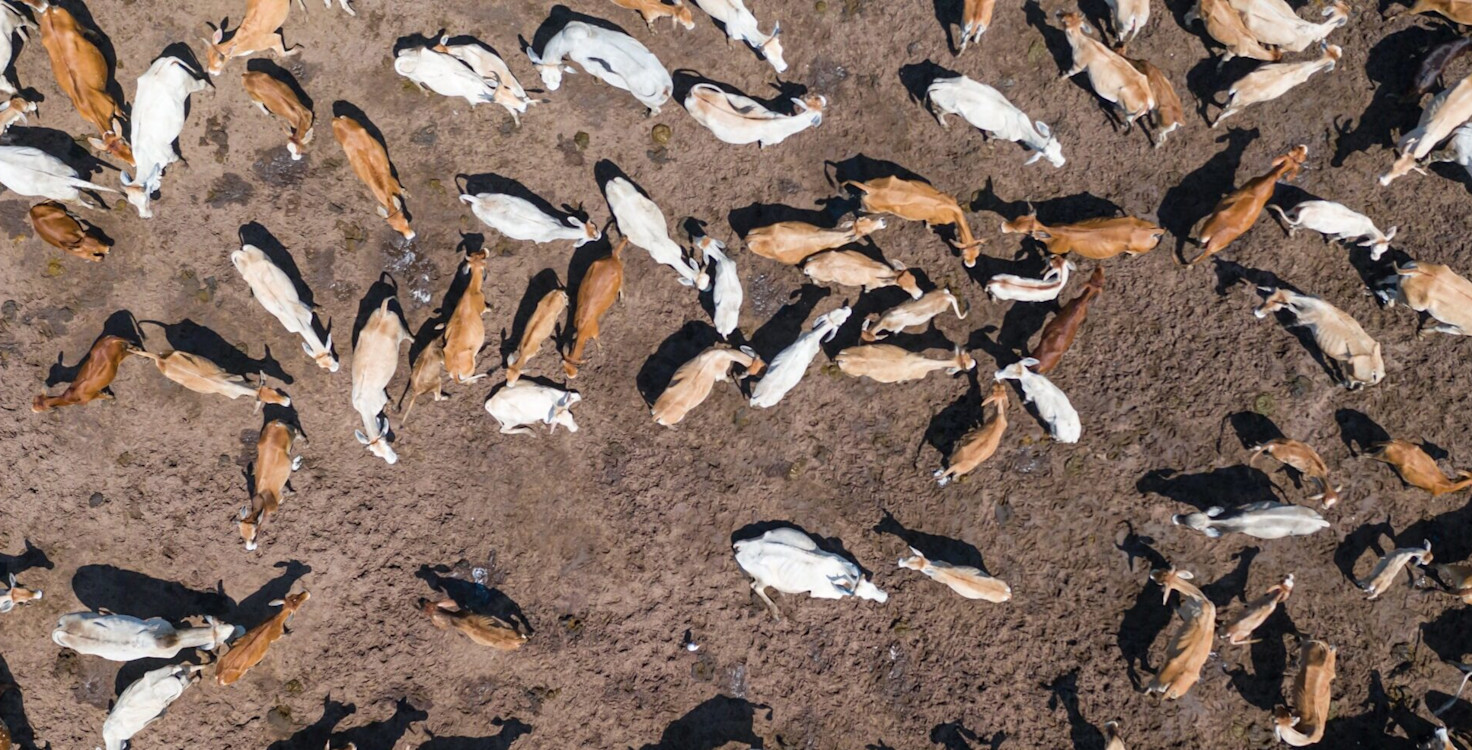Rising prices, growing ESG risk and shrinking competition in the meat industry are connected trends. Biden’s billion-dollar meat plan suggests support for smaller processors and producers can help avoid risk in all areas.
The past 40 years have been a boom time for mergers and acquisitions in the meat industry in the United States, with more and more production finding its way into fewer and fewer hands.
From seed and fertilizer producers through feed suppliers, farmers and slaughterhouses, the US food industry has become increasingly consolidated, leading to worse conditions for workers and animals, damage to the environment and prosecutions for price fixing.
Just four companies control 85% of the US market for beef, while four supply 70% of pork. Farmers have been forced to amalgamate or pushed out of business, and processing is carried out in big regional centres that have replaced local meat packing facilities.
The Covid-19 pandemic exposed the fragility of consolidated animal protein supply chains as shut-downs at meat processing plants caused by outbreaks among employees, who were often working in unsafe conditions, led to the forced destruction of animals on farms. When 12 slaughterhouses process 52% of US cattle, a slowdown or closure at one has massive knock-on effects across the sector.
A risky business
And it’s not just pandemics. The consolidation has made animal protein production increasingly vulnerable to a range of shocks that make investors nervous. The threats range from antimicrobial resistance, caused by the overuse of antibiotics on intensive farms, to cyber-attacks like the one that shutdown plants owned by JBS SA last year, disabling a fifth of US meat production.
FAIRR research also highlights the ESG risks to investors of a sector which has failed to address its contribution to pollution and its wider effect on the environment. The Coller FAIRR index of the 60 biggest animal protein producers found 86% do not declare or set emissions targets and only 7% have policies to mitigate deforestation by feed suppliers.
Pledges by Governments at COP26 to cut emissions – particularly of methane – and to end deforestation by 2030 add to the urgency for the livestock industry to change course. As governments look to meet their obligations, the pressure for regulation will be intense.
Biden’s billion-dollar plan
More immediately, as consumers face inflation not seen since the 1980s with chicken prices rising 10.4% in the past 12 months, the Biden administration has moved to tackle the near-monopoly on meat production, which has choked-off independent operators and pushed up prices.
The president’s Meat Action Plan will encourage the use of existing laws to prosecute anti-competitive practices and build on the legislation in an attempt to level the playing field and diversify the sector.
To pursue that goal, $1 billion in federal aid will also be made available to increase meat and poultry processing that’s independent of the dominant corporations. Farmers will be encouraged to have a stake in the new facilities, which are intended to spur private investment and showcase better conditions and opportunities for workers and suppliers.
A recent deal between Cargill Inc and Continental Grain Co to merge chicken processors Sanderson Farms and Wayne Farms is under threat due to the president’s new action plan, with regulators requesting additional information in December.
Smaller processors and producers have the potential to be less vulnerable to ESG and climate risks than big corporations, and the government support offers an opportunity for investors to help drive the diversification of US agriculture and benefit from its improved resilience.
Additionally, if subsidies can be redirected away from intensive farming and the over-dominance of monopolistic operators towards incentivising and supporting farmers striving to integrate more sustainable and transparent practices, private investors could help catalyse the change required.
The effects of de-consolidation would also resonate beyond farm gates and meat plants and bring the possibility of a more sustainable and equitable food supply industry for consumers and investors while supporting jobs and society.
Bigger doesn’t always mean better
In his submission to a Congressional Antitrust Sub-Committee last month (Jan. 18), Ruarri J Miller, the owner of a small Burrito shop in Riverside, Rhode Island, recounted the effect on his business and its nine employees during the pandemic. While the price of chicken rose 157% and his supplier benefitted, increasing their profits by 34%, many independent restaurants – “kitchens of the community” – were forced out of business, he wrote as he spelled out the social and cultural cost of over-consolidated supply chains. “Bigger isn’t always better,” he told lawmakers. “Food isn’t transactional.”
The industrial model of agriculture has driven farmers off the land, has led to unsafe working conditions and has polluted local environments, as well as leaving producers and the supply chain vulnerable to disruption and bottlenecks.
An imminent report from FAIRR demonstrates how Covid-19 exposed the industry’s fragility to external shocks, coming at a high cost to the economy, investors and human health. Now there is a window for regulators and policy makers to act to tackle over-consolidation to ensure the US is better prepared for future crises.
Investors have an opportunity to make that change count.
FAIRR insights are written by FAIRR team members and occasionally co-authored with guest contributors. The authors write in their individual capacity and do not necessarily represent the FAIRR view.










